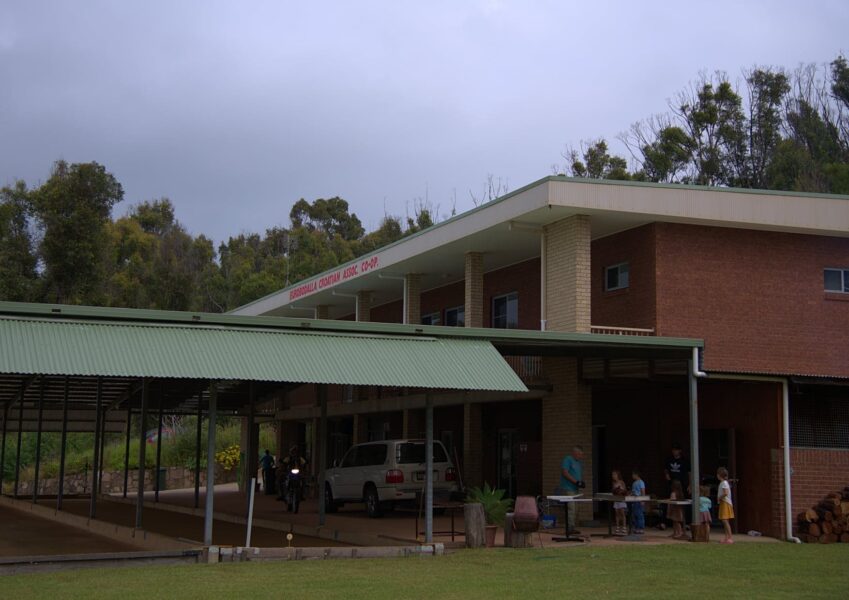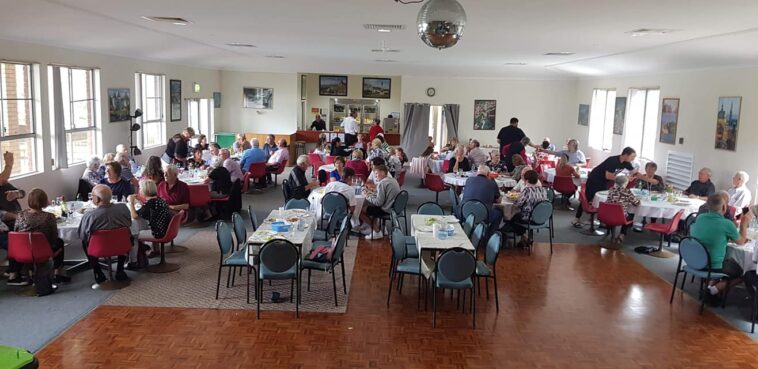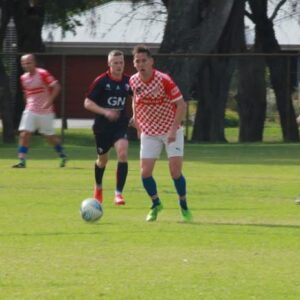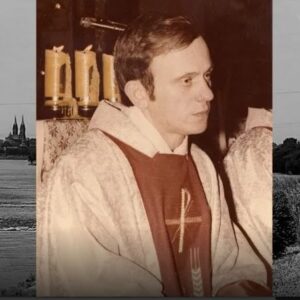
Regional Croatian Clubs need your support and patronage
Eurobodalla Croatian Association (and bocce sports club)
587 George Bass Drive, Malua Bay, NSW
Located on the beautiful and pristine NSW South Coast and a mere 200 metres from the stunning Malua Bay beach, this club is open and keen to show you it’s hospitality. Malua Bay is located half-way between Batemans Bay and Moruya.
When is the club open?
The club is open Saturdays and Sundays, 1-5pm. During these hours, the downstairs sala has a selection of beverages which you can enjoy in the alfresco covered area whilst watching or playing a game of bocce. There is also a grassed area where kids can run around or kick a ball.
How to get there?
Driving southbound on George Bass Drive, you will pass Malua Bay beach and the local Surf Lifesaving club on your left-hand side. Drive a further 200 metres and take the small suburban street to the right. The club is sign posted on regular blue council street signage as ‘Bocce Club’. This small street winds its way up a hill. Keep driving pass the tennis courts, the Croatian club is at the end of the street.
Birth of the club. When and how did the club form?
Local and visiting Croatians organised a picnic on 2 February 1990 at Cassey’s Beach, 10 minute drive from Malua Bay. At this picnic they collect $1,400 which was sent to Croatia in support of our homeland war. Whilst at that picnic, a conversation sparked around building a local Croatian club.
Later that same month, in February 1990, a small group of five people (four Croatians and one local Australian solicitor) met with council. They put forward an application to build a club with bocce facilities and requested the council’s support by way of permission and a land grant.
The council asked why the group wanted a Croatian club and Bocce facilities. The group explained that the area of Batemans Bay and its surrounding region had become a popular location for a growing Croatian community to live, visit and invest – be that investment for permanent residency, operation of businesses, or holiday homes. Additionally, they explained that the game of Bocce is immensely popular amongst Croatians that it is part of our tradition and culture.
The group asked for land anywhere in the Batemans Bay area. The council investigated various options and the result is the present location at Malua Bay, just south of Batemans Bay. As far as the small group of club pioneers were concerned ‘it was the best spot we could get’.
Following a further two council meetings, the council gave its permission in 1990 to build a club. But that was just the start. It would take many subsequent meetings and submissions across an additional three years before the group obtained approval in 1993 from the NSW Land Depart to access and use the land. Since that time, the club has operated under an extensive long-term lease.
The building of the club commenced in 1993.
Acknowledgements – Svaka čast!
There were lots of people who contributed their time, equipment, experience, labour, design, sweat, tears, heart and soul into the building of the club. From carpentry, to brick laying, to steel works, windows and all the fit outs. I could name some of these people, but I won’t do so as to not omit anyone. I know there are people across Australian and more locally from the Bay, Canberra and Sydney whose brothers, sisters, parents and grandparents played their part in the build. Our sincere ongoing thanks extends to them and their descendants. I wish to also acknowledge the many committee members who have run this club across it’s near 30 year history, along with the people who have volunteered their time and labours to keeping the club running.
Od srca zahvaljujemo svima.
Foundation members
Back in 1993, foundation membership was $500 per individual which was quite a significant amount of money at the time. You will find two plaques containing the foundation member’s names on a wall directly opposite the entry of the downstairs sala. In order of their membership number, the foundation members are: Pero Tutek, Drago Bandur, Josip Butković, Ante Miloloža, Stjepan Parancin, Marko Domitrović, Ante Vidović, Mihovil Vidović, M&A Vidović, Ivan Prgomet, Frank Belsa, Pero Burum, Ivan Novak, Ivan Jurin, Ivan Križan, Joso Glavinić, Ante Giljević, Joso Tokić, Nediljko Vidović, Draga Novaković, Ivan Ivanković, Mile Medić, Ivan Domazet, Zdravko Ostojić, Vinko Crnević, Janko Grman, Pero Milin, Stanko Milin, Slavko Došen, Ljubo Cetinić, Mijo Glavinić, Marko Nazor, Tomo Lučić, Rudi Pašić, Ante Curać, Alberto Mirošević, Ivica Barać, Stipe Tanfara, Božo Ikić, Marinsel Transport, Mile Lemezina, Jure Lemezina, M&R Invest, Andrija Glavinić, Ante Tokić, Šime Gulan, M&R Environments, Jere Cobanov, M&R Vukša, Ivan Plovanić, Jakov Markezić, Vall Cook, L&M Pavić, Drago Domazet, Vladimir Batistić, Marin Batistić, Franceska Batistić, Ivan Krizaić, Dr Veronika Jakovec, Josko Cuješ, Srećko Vidović, I&M Vrbenski, Ida Kolarić, J&D Rašić, Nikola Pirijač, Nikola Barić, Ivan Živko, Tesa Homes, John Sestarko, Duško Peraić, Milan Marincel, Johan Radman, I&C Pratezina, Franjo Soldo, Mile Barešić, Toni Radovanović, Ivan Tijan, Josip Andrić, Šime Parancin, J&V Bezinović, Pero Zlatar, Nikola Andrijić, Branko Prdzan, Marko Susić, Pavlina Vatavuk, Šime Šešelja, Leo Kolarić, Mate Barišić, Ljubo Vidović Ivan Pintar, Rade Krile, Ante Glavinić, Mijo Spudić, Lovro Vidović, Mijo Polović, Rudi Pašić, Branko Mihalić, Ivan Pavleković, Slavko Crnić, Ivo Hropić.
Zabave
On New Year’s Eve, 31 Dec 1993, the club held its first zabava.
The club had power and water, but the build wasn’t quite complete. The crowd dined, danced, and sung merrily directly under the tiled roof there being no ceiling, no kitchen, and no toilets. So determined was the group to celebrate the opening ‘within the year’, food was brought in and portable toilets set up in the yard. They had a band playing that night – a young group of korčulanski musicians who travelled from Sydney (my apologies for not being able to name the band, it was a brilliant night, if there are musicians of that band reading this article, we’d love to see you back on our stage – you are part of our history).
Zabave for the club generally coincides with public holidays to allow for visitors to travel to the area. There have also been many private functions at the club – weddings, christenings, birthday celebrations and significant milestones.
We have twice had folkloric dancers perform on our dance floor. Once a dance troop from a Melbourne club travelled the long distance to perform, and we have also had HFG Zagreb Wollongong perform. Whilst these performances were from two decades ago, they have been remembered, and our thanks extends to both clubs for sharing the joys of our culture on our dance floor.
Special mention in a section on ‘zabave’ must also be given the Croatian band ‘Slaveg’ from Canberra. Slaveg performed at the club for many years bringing much joy to party goers, toe tappers and those that like to whirl on the dance floor.
Where does the word ‘Eurobodalla’ come from in the club’s name?
Eurobodalla is an Aboriginal word meaning “small haven for boats” or “land between waters” which is a perfect description for this idyllic area of the world. More formally, the club exists in the Eurobodalla Shire Council. Given the assistance, support, and permission the council granted to the club in its establishment, the word ‘Eurobodalla’ was etched in the club’s name.
It also gave the club a geographic location by association to the word. The Eurobodalla Shire is located on the south coast of New South Wales, between 280 and 360 kilometres south of the Sydney CBD, and between 150 to 220 kilometres south-east of the Canberra CBD. The Eurobodalla Shire is bounded by Shoalhaven City in the north, the Tasman Sea in the east, Bega Valley Shire and the Snowy Monaro Regional Council area in the south, and the Queanbeyan-Palerang Regional Council area in the west. It is the only Croatian club in this region of Australia.
Why visit the Eurobodalla shire?
The Eurobodalla Shire on the south coast of New South Wales is a great place to live, work, invest and play. There are spectacular beaches and bushland, plenty of parks and community facilities, and a wide range of services for Eurobodalla visitors.
What is the capacity of the club?
The club was built to a size suitable for a regional location. It does not have the ability that a metro club has to draw on an extensive city-size Croatian community. During Covid-19, the club’s capacity is capped at 124 people at the 4 square metre rule. Outside of restrictions, we have held up to 200 people in our main sala – but at that point, the club is extremely crowded and at maximum capacity. The committee would love to have you join and even help plan our next zabava – let’s make it a shoulder to shoulder party!
When will your next zabava be?
A new committee formed in March 2021 and are currently planning their 2021/22 zabave. We would love to hear from Croatian groups across NSW, ACT and wider Australia. We have a small committee of four people, and the overwhelming patronage of our members and visitors are retirees. Any assistance you can give to breathe new life into the club and to keep it running for future generations will be gratefully received. Details on our zabave will be posted on our new Facebook page.
Who uses the club?
First and foremost, the club is used for Croatian zabave, bocce, and ladies bingo; and three days a week the upstairs sala is used by the Malua Bay Bridge association. The new committee also plans on making the space once again ‘private party ready’ in the near future.
What is the design of the club?
The club has two floors and they are entered separately with no internal access between them.
The main sala is on the top floor. This floor is where functions are held. It has a small dance floor, is set up for seated dining during zabave, has a medium size kitchen, bar, cool room, small stage, and toilet facilities. The top floor is at ground level and access is directly from the car park.
The bottom floor is set up as a series of rooms that face an alfresco area. The first room has the club’s second bar, small kitchen and a small carpeted area with tables and chairs. The room next to this is carpeted and is generally where you’ll find ladies playing bingo on weekend afternoons. Further along we come to the ladies and men’s toilets, both of which have their own shower facilities. Slightly separated from the main building, you will then come across a ljetna kuhnja where meats are grilled and the roasting of spits occur.
Directly facing the downstairs building and connected by the alfresco area are the two bocce courts. The alfresco area and bocce are covered for all weather use. Adjacent to that is a grassed yard area often enjoyed by smaller children kicking around a ball.
The club is built on a hill, but both levels and all club rooms are wheel-chair accessible. There are no stairs. Access to the bottom floor is via a sloping driveway.
2019/2020 Bushfire
An article on the club can-not be written without mention of the recent bushfires that directly impacted the club and its people.
The club was ready, set and anticipating its biggest zabava of the year – New Year’s Eve, 31 December 2019. The kitchen fridges and freezer were filled with fresh produce and meats; the bar stocked, tables covered with crisp linen, set with shinny crockery and dishware, ready for a great zabava; and the band were making their way down the Clyde mountain driving from Canberra. The gardens had been tidied, grass mowed, outdoor area swept, outdoor BBQ kitchen cleaned and the spit ready.
In a matter of two short hours, dark plumes of smoke filled the air, roads were closed, people were asked to vacate their properties and power was cut. Flames were encroaching on Malua Bay. Early on during the fire, the local telecommunication tower burnt to the ground. Trees were bursting and you could hear the loud explosions of farm and bush housing gas bottles and equipment. Water helicopters arrived carried water in their monstrous gorgeous bellies across the skies. Locals headed to the beach. People, domestic pets, and farm animals all shared the soft sands and relative safety of the beach. The sound of the Pacific Ocean waves were drowned out by the roar of the ferocious fires. The people of Malua Bay were cut off from the north, west and south by flames; and the ocean to the east. Adding to the stress of the situation, with the mobile tower burnt down, there was no-way anyone could make a call to a loved one.
Then the fires arrived at the Croatian club. They had already engulfed and disintegrated the Malua Bay bowling club and many homes not 100 metres as the crow flies from the Croatian club – in every direction.
The club is set in council bushlands surrounded by trees and scrub. Two Croatian persons associated with the club drove to the club to check on its safety. They were local to Malua Bay and within the bubble of closed roads. On arrival they found that flames were blowing in on both sides of the driveway, and that the fire had reached the club licking at the eves and actively burning through the ground beams of the bocce court. Both men grabbed house-grade garden hoses extinguishing the flames and drench the building and roof with water. Days later on inspection, the local fire brigade was in wonderment as to how the club did not perish in the fire given it was directly in the line of fire, and that the bushland surrounded it had been engulfed.
Bushfire recovery
The Eurobodalla was significantly impacted by the 2019-20 bushfires. Hundreds of homes, many businesses, clubs, and thousands of hectares of bushland were damaged or destroyed. Recovery is a long-term process that is different for everyone. The fires hit the club on 31 December 2019 and the clean-up continues to this day.
The tell-tale signs of the fires will be obvious for decades to come. Giant blackened eucalyptus trees reduced to tall trunks cover the landscape like discarded toothpicks.
The power was off on Croatian club’s side of Malua Bay for a solid two weeks. All that fresh produce I mentioned earlier – meats, vegetables, fruits, diary, cakes – were putrefied in the heat. By the time the committee could access the building, all had to be thrown away. This came at a significant financial loss to the club and more importantly than that, heartache, and distress for its committee.
Trauma runs deep. The club remained locked up and closed through much of 2020 opening only towards the end of that year for a few hours on weekends. The new committee held the first function since the fires this past Easter Monday, 2021. With in-excess of 100 people, once again the upstairs sala was filled with Croatian voice, song and food; there was laughter and jeering on the bocce courts; and kids frolicked and played on the grassed yard … and the neighbours were teased with the aromatic smells coming from the ljetna kuhnja.
Regional Croatian Clubs need your support.
If you’re in the vicinity of a regional club wherever that might be in Australia, please take the time to visit, support and say hello. The locals will be extremely appreciative and will greet you with lots of warmth and welcoming. When you’re there, ask them tips of what to see and do to make the best of your holiday.
Is this club a myth?
Ha ha! Oh how many times I’ve heard this one. No, it is most definitely not a myth. It’s simply a best kept secret… until now. Please visit if you’re heading to the Batemans Bay area, bring your friends, and spread the word. We’re here to stay and we’d love your company and support.
Anything else? Any peculiarities a city slicker might not expect?
Yep! Sure are.
Things change slowly where the bush meets the beach. This club is strictly ‘cash only’.
Drinks and chips are served on regular weekend – at this stage, we only serve plated food at zabave.
Thongs and beachwear are very much considered ‘smart casual’ and allowed.
Don’t be surprised to see a group of kangaroos on the lawn at dust.
Occasionally, a lazy (and sometimes enormous) goanna will cross the car park, and even more often a red-belly black snake. But please don’t let this put you off. We’ve been living with these beauties for a hundred million years in the Eurobodalla.
Social media
Visit our newly created Facebook page: Eurobodalla Croatian Association Inc
Club contact
President – Mate Tomičić 0416 078 022




